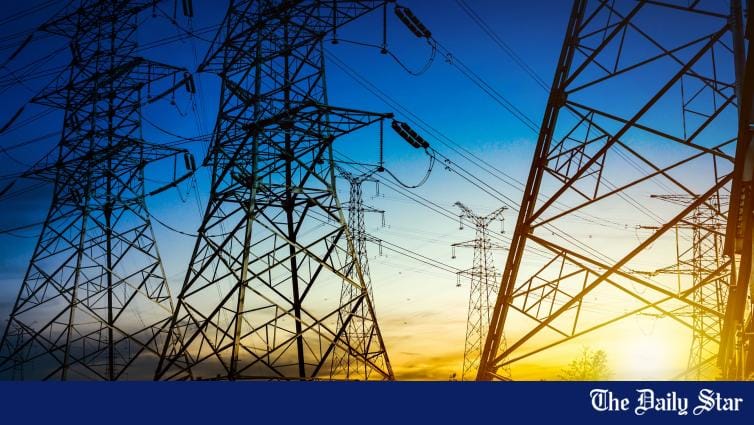Saif
Senior Member
- Joined
- Jan 24, 2024
- Messages
- 16,880
- Likes
- 8,153
- Nation

- Residence

- Axis Group


Govt to set up land-based LNG terminal soon: Alam
The interim government has decided to set up a land-based LNG terminal to ensure a smooth gas supply to the country’s factories. “Many are saying that they are unable to set up factories due to a lack of gas. So, we want to set up a land-based LNG terminal as quickly as possible so tha
Govt to set up land-based LNG terminal soon: Alam
BSS
Published :
Apr 25, 2025 16:28
Updated :
Apr 25, 2025 16:28

The interim government has decided to set up a land-based LNG terminal to ensure a smooth gas supply to the country’s factories.
“Many are saying that they are unable to set up factories due to a lack of gas. So, we want to set up a land-based LNG terminal as quickly as possible so that enough gas can be brought (from abroad),” Chief Adviser’s Press Secretary Shafiqul Alam told reporters in Doha on Thursday.
In this regard, he said, a plan was shared with Qatar Energy during Chief Adviser Professor Muhammad Yunus’s tour to Doha.
The land-based LNG terminal will be set up soon to expand the gas supply to factories in Bangladesh, the press secretary said.
Regarding the chief adviser’s Doha tour, he said it was a very successful and fruitful visit.
“I would say it is one of the most successful and very engaging visits,” he said.
Due to this tour, Alam hoped, the reputation of Bangladesh would spread across the world and many foreign investors would come forward to invest in Bangladesh.
Highlighting the bounce-back of the country’s economy, he said there were outstanding debts of US$ 3.2 billion during the ousted regime, but the interim government has reduced it to US$ 600 million.
The remaining debt will be paid within a few months, the press secretary said, adding, “It sends a positive signal to the outside world that we are ready for business.”
Wrapping up his four-day tour, Prof Yunus is scheduled to leave Doha today for Rome, Italy, to join the funeral of Pope Francis.
BSS
Published :
Apr 25, 2025 16:28
Updated :
Apr 25, 2025 16:28
The interim government has decided to set up a land-based LNG terminal to ensure a smooth gas supply to the country’s factories.
“Many are saying that they are unable to set up factories due to a lack of gas. So, we want to set up a land-based LNG terminal as quickly as possible so that enough gas can be brought (from abroad),” Chief Adviser’s Press Secretary Shafiqul Alam told reporters in Doha on Thursday.
In this regard, he said, a plan was shared with Qatar Energy during Chief Adviser Professor Muhammad Yunus’s tour to Doha.
The land-based LNG terminal will be set up soon to expand the gas supply to factories in Bangladesh, the press secretary said.
Regarding the chief adviser’s Doha tour, he said it was a very successful and fruitful visit.
“I would say it is one of the most successful and very engaging visits,” he said.
Due to this tour, Alam hoped, the reputation of Bangladesh would spread across the world and many foreign investors would come forward to invest in Bangladesh.
Highlighting the bounce-back of the country’s economy, he said there were outstanding debts of US$ 3.2 billion during the ousted regime, but the interim government has reduced it to US$ 600 million.
The remaining debt will be paid within a few months, the press secretary said, adding, “It sends a positive signal to the outside world that we are ready for business.”
Wrapping up his four-day tour, Prof Yunus is scheduled to leave Doha today for Rome, Italy, to join the funeral of Pope Francis.





